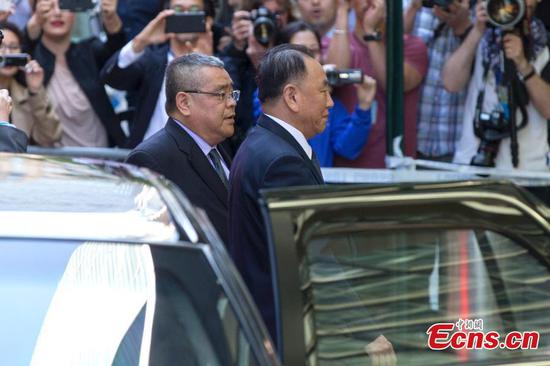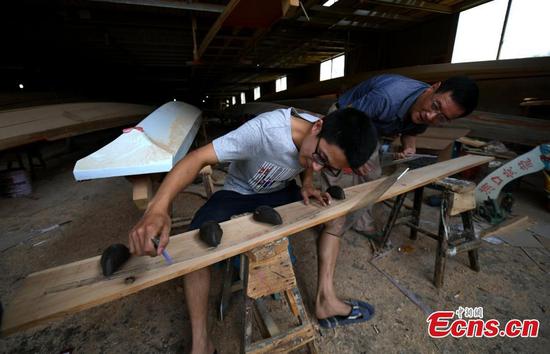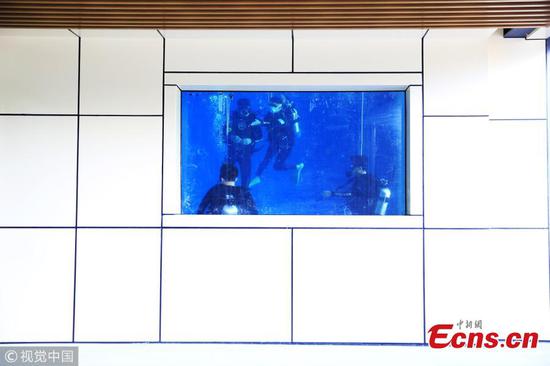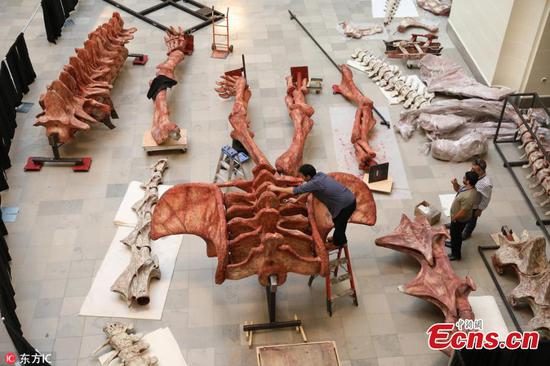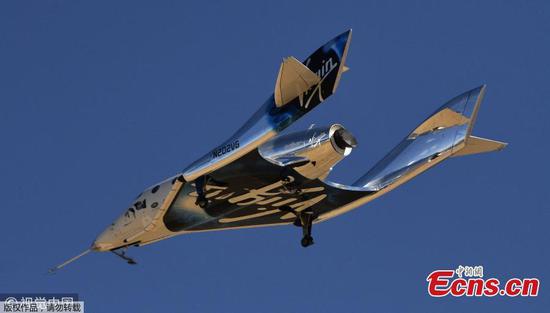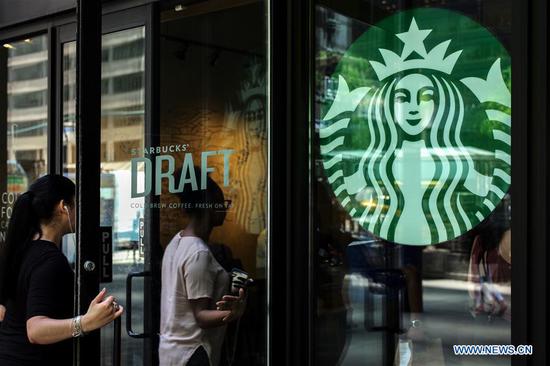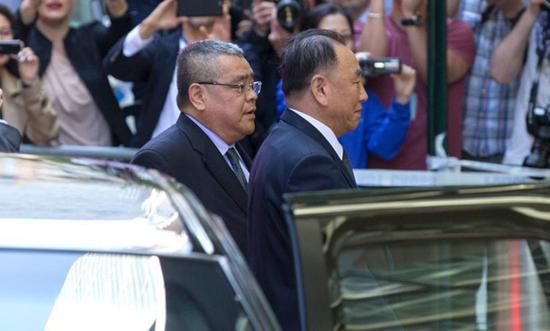The European Union stood ready to react to the United States trade restrictions on steel and aluminum in a swift, firm, proportionate and fully WTO-compatible manner, the European Union said Thursday in a statement.
U.S. Commerce Secretary Wilbur Ross announced that U.S. President Donald Trump has decided not to extend the temporary steel and aluminum tariff exemptions for the EU, Canada and Mexico, and those tariffs will take effect from Friday.
PROTECTIONISM
"The EU believes these unilateral U.S. tariffs are unjustified and at odds with World Trade Organization rules. This is protectionism, pure and simple," Jean-Claude Juncker, President of the European Commission said in a statement.
According to EU statistics, the U.S. measures affect EU exports worth 6.4 billion euros (7.5 billion U.S. dollars) in 2017.
"While striving to avoid today's situation, the EU has been preparing over the last months and stands now ready to react to the U.S. trade restrictions on steel and aluminum in a swift, firm, proportionate and fully WTO-compatible manner," the EU said in a statement.
The EU has decided to launch legal proceedings against the U.S. in the WTO on June 1 and it believes the U.S. measures were primarily intended to protect the U.S. domestic industry from import competition, clearly at odds with WTO rules.
"We will now trigger a dispute settlement case at the WTO, since these U.S. measures clearly go against agreed international rules. We will also impose rebalancing measures and take any necessary steps to protect the EU market from trade diversion caused by these U.S. restrictions," EU trade commissioner Cecilia Malmstrom said.
The EU said it will use the possibility under WTO rules to rebalance the situation by targeting a list of U.S. products with additional duties. And the level of tariffs to be applied will reflect the damage caused by the new U.S. trade restrictions on EU products.
In March, Trump announced plans to impose 25-percent tariff on imported steel and 10 percent on aluminum, while delaying implementation for some trading partners to offer concessions to avoid the tariffs.
The White House said in late April that the steel and aluminum tariff exemptions for EU member countries, Canada and Mexico would be extended until June 1 in order to give "a final 30 days" for them to reach agreements over trade negotiations. But those negotiations have so far failed to result in a deal.
The EU notified to the WTO a list of U.S. products on which the EU may in the future apply extra import duties on May 18. And in line with the WTO rules, it could trigger those 30 days later.
The Commission said it will now in coordination with EU member states to take a formal decision to proceed with the rebalancing measures.
The European Union and the United States have the largest bilateral trade and investment relationship and enjoy the most integrated economic relationship in the world.
RISK OF FRICTIONS IN TRADE TIES
Fredrik Erixon, director of the Brussels-based think tank European Center for International Political Economy, said though the issue itself, the steel and aluminum tariffs, are a small issue in transatlantic trade, let alone global trade, they can trigger bigger actions and they are a harbinger of forthcoming frictions in U.S.-EU relations. "That's not good for anyone," Erixon said.
"The U.S. isn't that bothered by EU exports of steel to the U.S. because the volumes are pretty small, so they are also using the threat of steel tariffs to get the EU to become more accepting of other U.S. wishes for the EU, like reducing tariffs in the auto sector," Erixon added.
The Trump administration is using the so-called Section 232 of the Trade Expansion Act from 1962, a decades-old law, to slap tariffs on imported steel and aluminum products on the ground of national security, which has drawn strong opposition from the domestic business community and U.S. trading partners.
Commerce Secretary Ross has also initiated a Section 232 investigation into the national security implications of automobile imports, which has provoked widespread opposition from U.S. lawmakers, business groups and major trading partners, as they think the unilateral move threatens to disrupt global supply chains and kill American jobs.
"If such tariffs would be introduced, they would have a knock-on effect on bilateral trade and unravel the value chain of auto production. This would be far bigger than the tariffs on steel and aluminum," said Erixon.
"The prospect of auto tariffs have made everyone to double down on their defensiveness in transatlantic trade," he added.
















